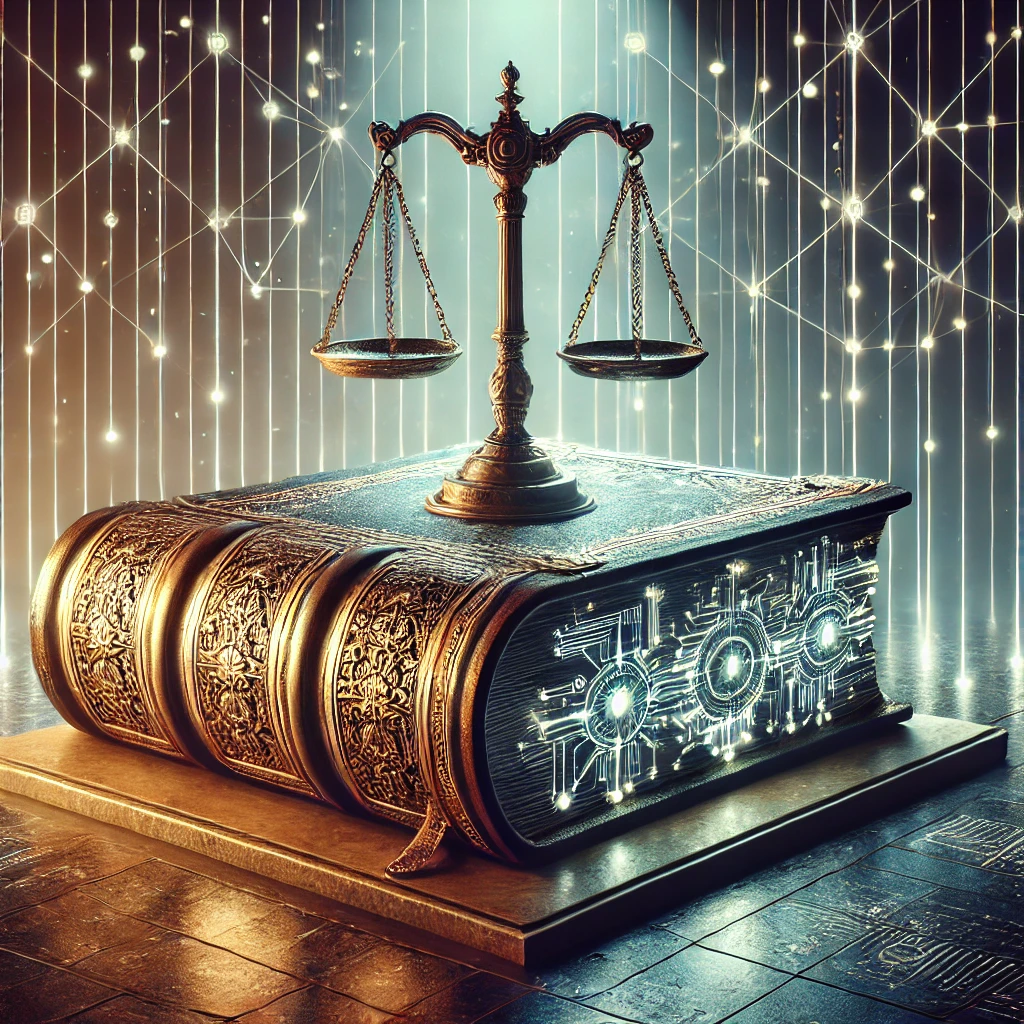What happens when the truth becomes permanent? In a world reborn from war, one vote embeds blockchain into the heart of governance—changing how history is remembered, and how power is held accountable.
Disclaimer: this post was created with ChatGPT, an AI language model.

In 2043, the world finally had peace—but no one could agree on what it meant.
The Cantharan Conflict had ended just five years earlier, the last war between sovereign states. Ten years of orbital skirmishes, proxy rebellions, and resource seizures had scarred continents and left trust fractured. When the Unification Accord was signed, it marked more than a ceasefire—it was the birth of a new world governance.
But beneath that peace was a silence no one dared touch.
Until the chain.
Amendment Nine sat at the center of the Global Council's circular hall, projected in sharp light above the assembled delegates:
“Mandate blockchain-based public records for all state functions, retroactive to the year 2000.”
No deletions. No redactions. Every memo, briefing, and order would be cryptographically verified, permanently stored on a decentralized, publicly accessible blockchain. Interlinked and contextualized by natural language models. Searchable by anyone, anywhere. Trust was no longer a requirement—just math.
Outside the hall, protest signs floated like lanterns: No More Silent Wars. Let Memory Speak.
Inside, silence waited for history to wake up.
Councilor Reza rose. His face was weathered, his voice calm, but his words carried weight. He had been there—through every escalation, every classified briefing, every rationalization.
“I don’t oppose the technology,” he said. “It’s flawless. Too flawless.”
He gestured toward the projection—a visual blockchain mapping the provenance of a drone strike: embargo memo to operational directive to final execution.
“But if this passes, we won’t just record the present. We’ll expose the past. Not all of us will survive what that reveals.”
A silence followed. Not of disagreement, but recognition.
Across the table, Councilor Omari stood. She didn’t look away from Reza.
“We built peace on a shaky foundation,” she said. “If we pretend the past didn’t happen, it will happen again.”
She activated a simulation. The blockchain interface replayed decades of locked-away decisions. A natural language model narrated connections: embargoes, falsified threat reports, unsanctioned deployments. The chain was verifiable, immutable, and damning.
The final node blinked red: The war was preventable. The escalation was artificial.
Then a younger voice joined them—Councilor Eliya, born after the first orbital strike.
“We call this era peace,” she said. “But we’ve never been told how it really started. What we inherited was an edited story.”
She looked around the chamber.
“If we want to pass on more than silence, we need to give them something better. We need to give them memory—verified, unalterable, shared.”
The vote passed. By two.
Six months later, the chain opened.
It didn’t shout. It illuminated. With full historical input, LLMs began stitching fragmented decisions into clear, cohesive narratives. Blockchain entries, once scattered and siloed, formed a lattice of undeniable truth.
The Cantharan Conflict—long a cloud of speculation—was reconstructed as a precise chain of intentional acts.
No more speculation. No more spin. Just patterns—clear, sobering, precise.
Families of the fallen watched the reports not to accuse, but to understand.
This is how it started. This is who turned away. This is why it lasted.
A cascade of resignations followed. Some were prosecuted. Others stepped forward before their blocks were even examined.
One morning, Reza received his summons.
He didn’t resist.
At his hearing, he stood tall, hands open.
“I thought we were defending stability,” he said. “But I see now—we were protecting optics. I won’t hide from that. The future deserves better than silence.”
He stepped down, not as a condemned man, but as someone who had chosen to face what he helped create.
And those still in power?
They began to write differently.
Memos became clearer. Rationales were laid bare. The language of governance shifted from bureaucratic defense to accountable prose. It wasn’t policy by secrecy anymore. It was action knowing the future was watching.
Ten years later, children learned to navigate the blockchain the way they once studied maps—because it was a map. Not of land, but of choices.
In her final address, Councilor Eliya, now Head of Council, spoke simply:
“We do not inherit peace. We inherit the memory of how we earned it. And that memory is our greatest safeguard.” No more sealed orders.
No more silent wars.
The future had inherited the ledger.
